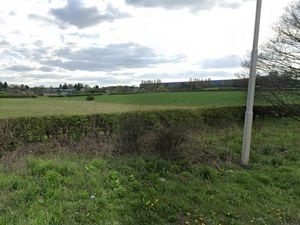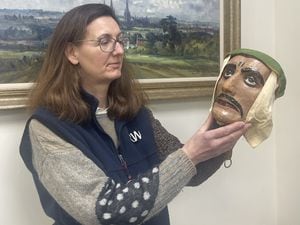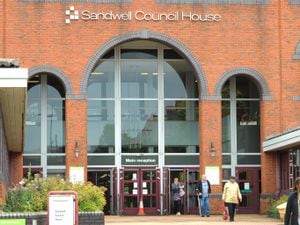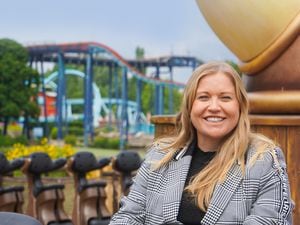One in six in Black Country and Staffordshire waiting a week to see GP
One in six patients across the Black Country and Staffordshire are waiting at least a week to see a GP or nurse, new figures reveal.
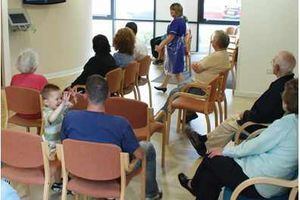
A survey of 22,921 patients showed 3,499 - or 15.2 per cent - of them could not get an appointment within seven days.
The information was gathered from patients at every surgery in the country by NHS England.
And in some areas nearly half of patients said there were no appointments to either see or even speak to a GP or nurse on the phone available on the day they wanted.
Some 47 per cent of patients asked at the Yew Tree Surgery on the border of Walsall and Great Barr had to wait that long – the most in the Sandwell and West Birmingham area.
That is followed by the Tividale Family Practice with 45 per cent.
In the Dudley area, the Lapal Medical Practice in Halesowen had 37 per cent and Dudley Partnerships for Health in Dudley Wood had 35 per cent. Elsewhere, the Park Street South practice came bottom in Wolverhampton with 33 per cent, and at Bagary's Medical Practice in Bradley 30 per cent of those asked waited a week or more.
The Limes Medical Centre was the worst in Walsall with 44 per cent, while the practice in Birmingham Road, Darlaston had 36 per cent.
Surgeries in Cannock fared better, but the Sandy Lane site was bottom with 27 per cent, and The Colliery Practice in Hednesford Street, Cannock had 25 per cent. The Stafford and Surrounds area's worst was the Wolverhampton Road Surgery at 35 per cent, with a figure of 29 per cent at Hazeldene House.
Wombourne's Dale Medical Centre had the highest proportion in the South East Staffordshire region with 33 per cent.
Between 2,000 and 5,000 patients were asked a range of questions about the service they receive at their surgery.
The worst area was Stafford, where 17.4 per cent of the 1,996 patients asked had to wait at least a week for a routine appointment.
In Dudley, 15.38 per cent of 3,972 patients waited that long, compared to 15.25 per cent in Walsall, 15.19 per cent in South East Staffordshire, and 14.91 per cent in Wolverhampton.
Some 14.84 per cent of patients waited a week or more in Sandwell and West Birmingham, and 14.7 per cent in Cannock.
And one of the main problems facing patients is a lack of appointments available on the day they want according to the survey, which covers March to September last year.
In Walsall 68 per cent of patients said there were no appointments on the day they asked for, which was 24 per cent higher than the average across all areas.
Some 46 per cent gave that reason in Sandwell, along with 44 per cent in South East Staffordshire and Stafford, 36 per cent in Dudley and Wolverhampton, and 35 per cent in Cannock.
It comes as the Royal College of GPs suggests pharmacies could ease the pressure on doctors.
The proposals focus on pharmacists seeing patients with common ailments directly - not on setting up shops within surgeries.
Pharmacists would provide health advice and be able to prescribe medication once extra training had been completed.
NHS England, which commissions GP services, also insists the overall figures from the survey were positive, with 85 per cent of patients across the country getting an appointment to see or speak to someone at their surgery when they last tried. This, however was down 0.7 per cent on the previous year, and 1.5 per cent on 2012.
Concerns have been raised that the waiting times will mean even more people end up going to already-struggling A&E units instead.
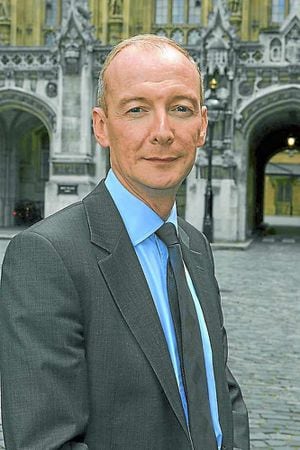
Wolverhampton South East MP Pat McFadden said: "A week is too long for someone to be waiting to see a GP. It is increasing pressure on A&Es that are overcrowded."
Royal College of GPs chairman Dr Maureen Baker said: "Patients should be able to see a GP when they need to and GPs are working flat out to deliver the best care they can extremely difficult circumstances. Unfortunately, what we are seeing now is a product of years of under investment in general practice. We have a chronic shortage of GPs with significant numbers approaching retirement age and insufficient numbers of medical graduates going into general practice to take their place."
In Cannock, Stafford and Dudley, clinical commissioning groups made up of GPs will take over the service next month.
The new responsibilities mean the CCGs will work alongside NHS England to make decisions about which GP services to buy.
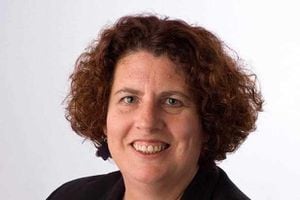
A Department of Health spokesman said: "The latest GP survey actually shows that the vast majority of patients –85 per cent – can get an appointment within a few days.
"But to increase convenience for patients we're also going further by offering 7.5 million more people email, skype and evening and weekend slots."


